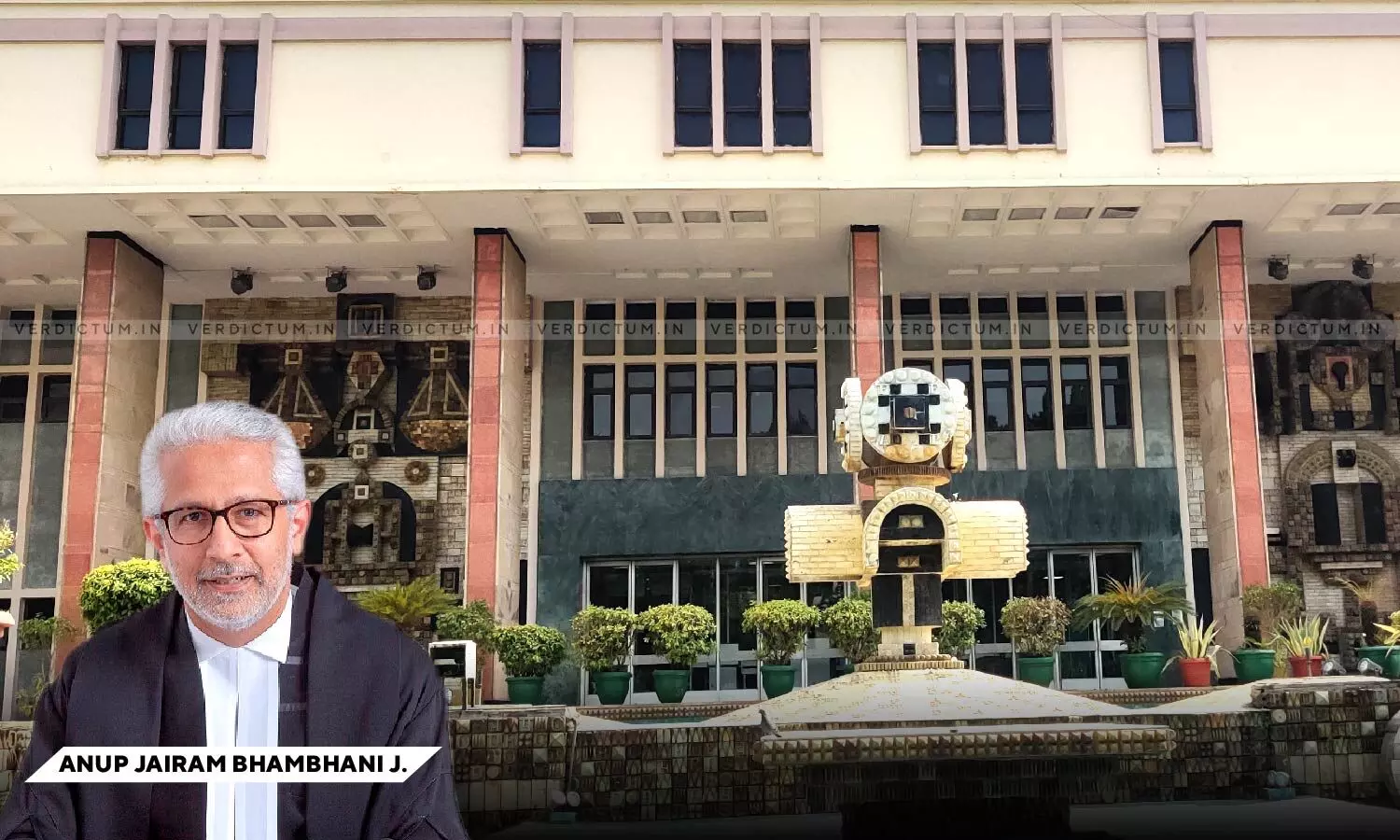
Foreign Citizen Can Also Be 'Aggrieved Person' Under Domestic Violence Act; Question Of 'Shared Household' Must Be Decided De Hors Citizenship Status: Delhi HC
 |
|The Delhi High Court observed that a foreign citizen can also be an aggrieved person under the Protection of Women from Domestic Violence Act, 2005 (DV Act) and the question of 'shared household' must be decided de hors citizenship status.
The Court observed thus in a criminal revision petition preferred by a woman against the order of the Additional Sessions Judge (ASJ) by which it dismissed her application under Section 12 of DV Act.
A Single Bench of Justice Anup Jairam Bhambhani held, “In the reading of this court, citizenship does not have even the remotest connection with a woman being an aggrieved person, or being in a domestic relationship, or having a shared household with a respondent. A foreign citizen may also fulfill the essential ingredients of being an ‘aggrieved person’ in a ‘domestic relationship’ with a right to reside in a ‘shared household’ within the meaning of the DV Act. Even if, in a given case, a person has entered the country without a visa, or has continued to reside in the country in breach of the conditions or the term of their visa, that would be irrelevant for deciding whether or not such person has a right to reside in a shared household. To be sure, if a woman violates the conditions of her visa, she may be liable for action under the Foreigners Act; but that is not a consideration that would be relevant for deciding an application under section 12 of the DV Act.”
Advocate Ravindra S. Garia appeared for the petitioner while Advocate Naginder Kumar appeared for the respondent.
In this case, the impugned order arose from a criminal appeal against an order by the Metropolitan Magistrate, which had dismissed the petitioner’s application under Section 12 of the DV Act. The ASJ questioned her citizenship and ordered the police to verify whether she was an Indian citizen, considering her Kabul, Afghanistan address and current residence in Delhi.
The High Court in the above regard noted, “The court must be careful not to conflate proceedings under the DV Act with those under the Foreigners Act, 1946 ('Foreigners Act'). To appreciate this, it must be noticed that there is nothing in the DV Act to suggest that a 'domestic relationship' can only be between two persons holding Indian citizenship. As can be gathered from its preamble, the objective of framing the Domestic Violence Act has no connection with the citizenship of a woman.”
The Court said that one may even conceive of a situation, where a woman may have temporarily resided in India and may have left the country for some reason, be it expiration of her visa, or having been forced-out by the husband or partner; even so, a plain reading of the DV Act shows that such a woman would be entitled to protection under that statute, since she may be an ‘aggrieved person’ within the meaning of Section 2(a) of the DV Act.
“As a sequitur to the above discussion, in the opinion of this court, the question of a ‘shared household’ must be decided by a court de-hors the citizenship status of an ‘aggrieved person’ who makes an application for relief under section 12 of the DV Act”, it added.
Accordingly, the High Court disposed of the revision petition and set aside the impugned order.
Cause Title- Bibi Sabera v. Major Dr. Chandra Shekhar Pant @ Himmat Khan (Neutral Citation: 2024:DHC:5835)
Appearance:
Petitioner: Advocates Ravindra S. Garia, R.B. Singh, Sunil Singh, and Shashank Singh.
Respondent: Advocates Naginder Kumar and Vaibhav Kapur.